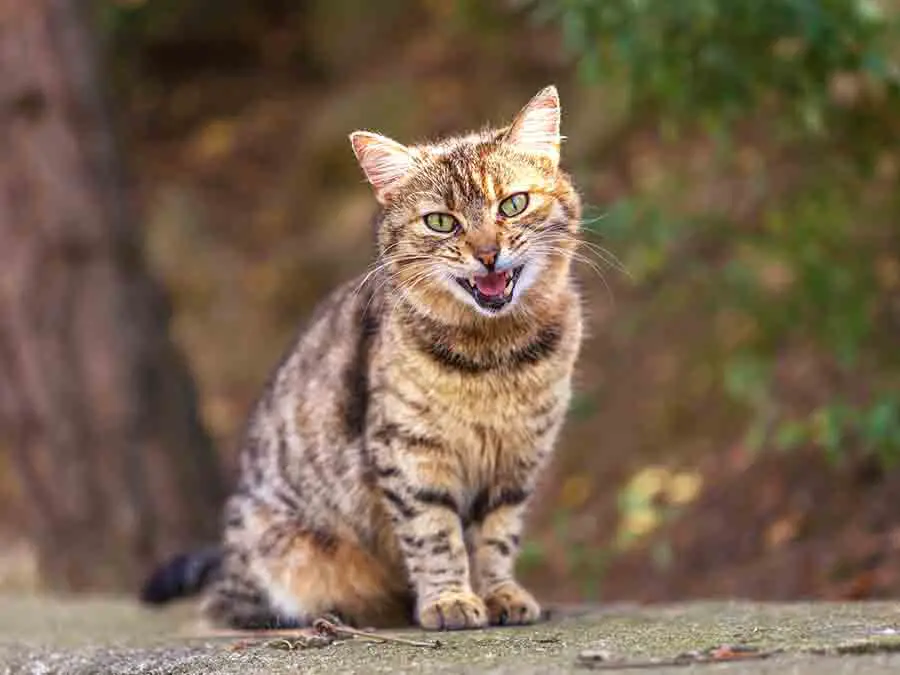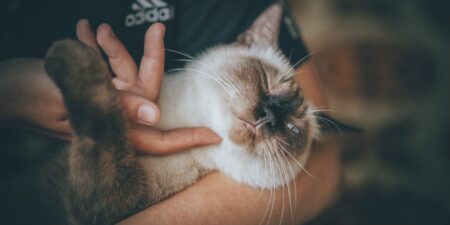Have you ever wondered if cats ever get tired of meowing? It’s a fascinating question to explore, as understanding the reasons behind their vocalizations can help us build stronger bonds with our beloved pets.
Cats use meowing as a form of communication, not only with their owners but also with other cats. Various factors, such as their breed, personality, and environment, can influence the frequency and intensity of their meows. In general, they don’t necessarily get tired of meowing; they meow when they need to convey a message or express their emotions.
Surprise, Surprise – Meowing Isn’t a Natural Means of Communication
First, it’s essential to understand that meowing is not a cat’s natural way of communicating with other cats. They typically use body language, facial expressions, and scent marking to interact with each other. However, meowing has become an effective method for cats to communicate with humans, and they’ve learned that we pay attention and respond to their vocalizations.
There are various reasons why cats meow. One of the primary reasons is to seek attention from their owners. They may want food, playtime, or simply your company. If their needs are being met, they’re less likely to meow excessively. It’s important to find a balance between responding to their needs and not reinforcing excessive meowing behavior.
Another reason cats may meow is due to stress or anxiety. Changes in their environment, such as moving to a new home or the introduction of a new family member or pet, can cause them to feel anxious. In these situations, they might meow more frequently as a way to cope with their emotions. Providing a calm and safe environment can help reduce their stress levels and, as a result, decrease their vocalizations.
Health issues can also cause cats to meow more often. Pain, discomfort, or an underlying medical condition might lead them to vocalize their distress. If you notice any changes in your cat’s meowing behavior, it’s important to consult with a veterinarian to rule out any health-related concerns.
It’s worth mentioning that some cat breeds are naturally more vocal than others. For example, Siamese and Oriental breeds are known for their chatty nature. If your cat belongs to one of these breeds, they might be more inclined to meow regardless of their needs or emotions.
In general, cats don’t get tired of meowing. They use it as a means of communication, and it serves an essential purpose in their interactions with humans. However, excessive meowing can sometimes indicate an issue that needs addressing, whether it’s a need for attention, stress, or a health concern. By understanding the reasons behind their vocalizations, we can form stronger bonds with our pets and ensure their well-being.
Conclusion
So, the next time you hear your cat meow, pay close attention and try to decipher the message they’re attempting to convey. You might just discover the key to a happier and healthier relationship with your furry companion.
Related Questions
1. Can cats become exhausted from excessive meowing?
Yes, cats can get tired if they meow a lot. Just like humans, excessive vocalization can lead to fatigue and even strain their vocal cords.
2. Why does your cat meow excessively?
Excessive meowing can indicate various issues, such as stress, hunger, attention-seeking, or health problems. It’s essential to observe your cat’s behavior and consult a professional if the meowing persists.
3. Is there a way to reduce your cat’s excessive meowing?
Yes, you can try different strategies to minimize excessive meowing, such as keeping a consistent feeding schedule, offering interactive toys, providing appropriate attention, and ensuring a comfortable environment. If the issue persists, seek professional advice.
4. Could excessive meowing be a sign of a health issue in your cat?
Yes, sometimes excessive meowing can indicate an underlying health problem, especially in older cats. Health issues, such as hyperthyroidism, arthritis, or cognitive dysfunction, can cause an increase in vocalizations. Visit a veterinarian if you suspect a health issue.
5. How can you distinguish normal meowing from excessive meowing?
It’s essential to understand your cat’s usual vocalization patterns. If you notice a sudden increase in meowing frequency, duration, or intensity compared to their regular behavior, it can be considered excessive. In such cases, it’s wise to seek expert advice.
Stop the Constant Meow: 6 Reasons Why Your Cat Over-Vocalizes (Video)
"In ancient times cats were worshipped as gods; they have not forgotten this."
-- Terry Pratchett





